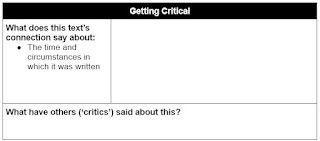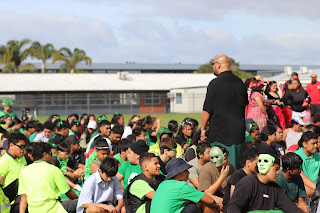In Week 2 of Term 2, I wrote about my NCEA Level 3 English pre reading activities for our novel study for Tim O'brien's 'The Things They Carried'. Please see the link below to the post that I wrote which details the pre reading activities that we did for the extended study:
See Alby's Blog Post Entry - (05/05/24)
Since Week 2, the students have through the three short texts from O'brien's 'The Things They Carried' which are:
- Speaking of Courage
- The Man I Killed
- How to tell a True War Story
For each reading the students went through and highlighted quotes that detailed the idea of 'the things they carried' (both tangible and intangible things that the war veterans carried). Once they completed this, we discussed the main connection or message of each text linking it to the author's purpose. The class discussion was good as it highlighted how like the war veterans, we took carry tangible and intangible things. It is often the intangible things that weigh the heaviest. The highlighting of the quotes and class discussion was the perfect segue way into the post reading activities.
POST READING ACTIVITY
For the post reading activity, the students complete a reading log for each the texts that they have studied in class. The purpose of the reading log is for the students to log in all the key quotes, learnings, reflecting on the author's purpose, critically analyzing the context of the text and connecting the text's message to the supporting texts. What they produce with the reading log will be used as evidence for the Term 2 assessment (91478 - Connections Report). Ultimately, the reading logs is the launching pad for the assessment. I will outline the reading log that my NCEA Level 3 English students are currently working on for the post reading activity.
 |
| Reading Log: Text Connection |
The students will answer the questions (as above) coming up with the text's main message. Prior to this, a class discussion has already taken place where they have discussed the text's main message, theme or purpose. They will write about the main message, find four quotes from the text that link to the message and then reflect on the author's purpose.
 |
| Reading Log: The Crafting of the text |
The students will find specific quotes (again the quotes they use will be from the quotes they highlight straight after the reading which is guided by the teacher post reading). They will specific quotes where the author has specific language features and techniques to help the reader visualize, understand and connect with the text's main message. The language techniques that I encourage the students to find which are used well in 'The Things They Carried' are symbolism, repetition, metaphor and reoccurring motif. It is encouraged that they use these quotes as part of the evidence from the text when they craft their connections report.
 |
| Reading Log: Getting Critical |
The students are asked to look beyond the text and think about the context surrounding the text. Specifically looking at the social and political landscape that could have potentially influenced the writer's choices. They are also asked too at what critics are saying about the context or any of the main issues that have come from the text. Again, the students will use this in their written report for the connections assessment.
 |
| Reading Log: Inter-text Linking |
The students will discuss and comment on how the text's message or connection is similar or different to the other texts. They will use in their written report and really discuss the connection and what they have learnt through the text and how it influences the text(s) as a whole.
Next steps:
- Students to complete reading logs for the short text's studied in class
- Students to select a FOURTH text of their choice (that links to the texts) and complete a reading log
- Introduce the assessment in Week 5 and explain how the reading log can be used in the crafting of their text.











.jpg)










